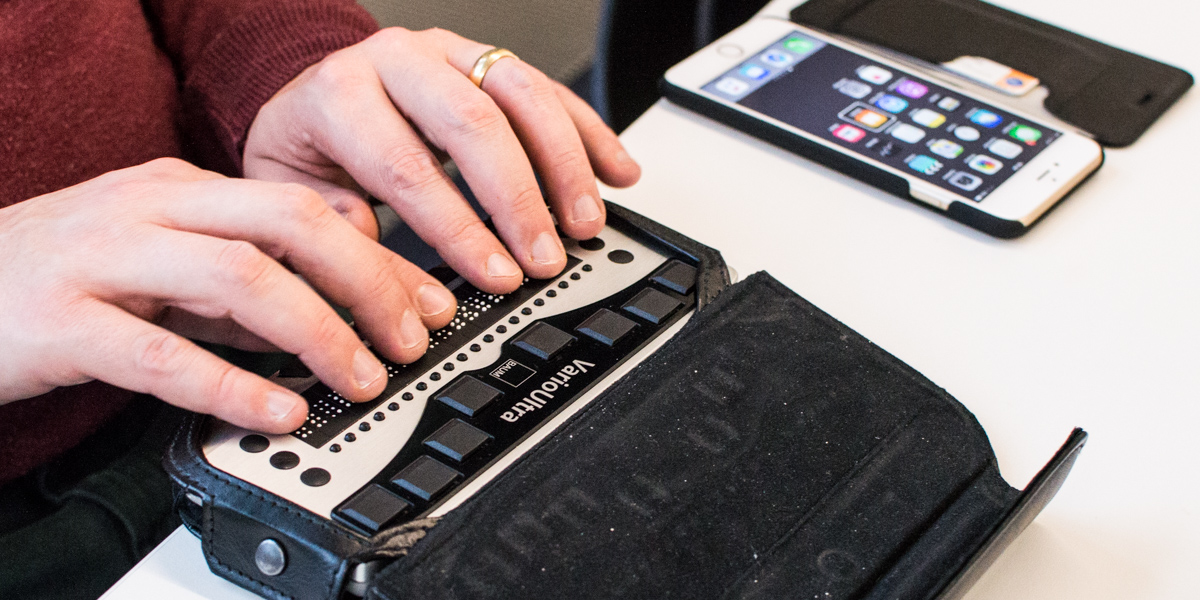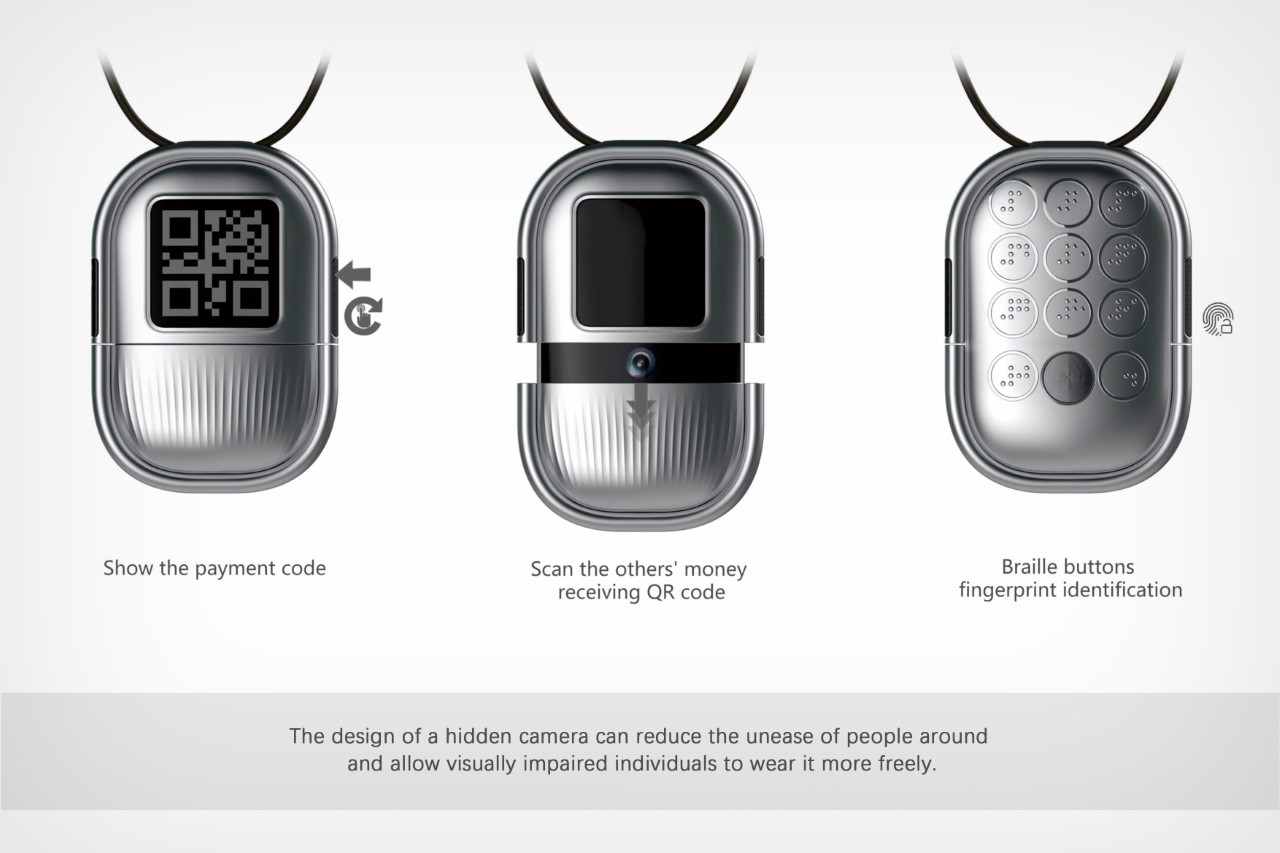Voice-Activated Assistive Devices: Supporting the Visually Impaired
Voice-Activated Assistive Devices: Supporting the Visually Impaired
Blog Article
Empowering Independence With Assistive Technology for the Blind
The integration of assistive technology into the lives of people with visual disabilities stands for a substantial development in promoting independence and self-sufficiency. From innovative screen visitors to sophisticated wise walking sticks, these tools not just enhance everyday navigation and communication but additionally encourage users to engage meaningfully in numerous facets of life. As we check out the myriad advantages and real-world applications of these modern technologies, it becomes critical to take a look at the underlying variables that add to their efficiency and the possibility for future advancements in this important field.
Overview of Assistive Modern Technology

The advancement of assistive innovation is based in concepts of inclusivity and empowerment. Innovations in software program, hardware, and sensory improvements give users with alternatives customized to their specific demands. From display viewers that transform text to speech, to responsive tools that share details via touch, these devices transform the method individuals engage with their surroundings.
Along with sensible applications, assistive modern technology cultivates higher social inclusion and involvement in different industries, including education and learning and work (Braille displays and notetakers). As study and advancement remain to develop, the possibility for assistive technology to better boost the lives of aesthetically damaged people continues to be encouraging, leading the method for an extra fair society where everyone can flourish
Sorts Of Assistive Tools
A range of assistive tools have arised to sustain individuals with visual disabilities, each developed to fulfill particular demands and improve day-to-day functioning. These devices vary from low-tech solutions to sophisticated innovations, offering varied alternatives for users.
Low-tech gadgets include magnifiers and large-print materials that aid in reading and writing. Braille devices, such as Braille stylus pens and slates, enable tactile analysis and communication. Alignment and wheelchair help, like white walking sticks, aid users navigate their atmosphere safely.
On the greater end of the range, digital zoom systems and screen readers provide considerable assistance. Electronic magnifiers enable customers to enlarge text and photos on screens, while screen viewers convert digital material right into synthesized speech, assisting in accessibility to information on smart devices and computer systems.
Mobile phone applications likewise play a critical function, supplying functions like message acknowledgment and navigating support. Wearable innovation, such as wise glasses equipped with increased truth, is becoming an appealing tool to enhance situational understanding.
Advantages of Assistive Modern Technology
The assimilation of assistive modern technology considerably improves the lifestyle for people with visual problems. These technologies empower customers by advertising self-reliance, enabling them to browse their environments better and perform day-to-day tasks with greater ease. Display viewers and magnifying software application enable people to access electronic information, cultivating professional and instructional chances that may have previously been out of reach.
In addition, assistive gadgets such as smart canes and GPS applications offer real-time navigation about his support, improving flexibility and security. This enhanced freedom not just enhances self-worth however also urges social involvement, enabling users to get involved more completely in their communities.
Assistive innovation additionally assists in communication, assisting customers connect with others through voice acknowledgment and text-to-speech applications. This ability is crucial for keeping relationships and accessing essential information.
Furthermore, the personalization choices readily available with numerous assistive modern technologies ensure that individuals can customize gadgets to their specific demands, further improving usability and effectiveness. Overall, the benefits of assistive innovation for people with visual problems are profound, promoting an extra inclusive society where everyone can pursue their goals and objectives.
Instance Researches and Success Stories
Highlighting the transformative influence of assistive technology, numerous study highlight just how people with aesthetic disabilities have actually efficiently incorporated these devices right into their day-to-day lives. One compelling example includes an university student that made use of display analysis software to navigate online resources and scholastic products efficiently. This modern technology not only facilitated her education and learning yet likewise boosted her confidence in joining conversations and team projects.
Another instance research study includes an expert who employs a smart device application designed for navigation and item acknowledgment. By using this app, he has actually gained back autonomy in both his personal and job settings, enabling him to commute independently and involve with coworkers a lot more successfully.
Additionally, a retired person shared her experience with braille e-readers, which enabled her to access a substantial click to read more variety of literary works and stay gotten in touch with her area through publication clubs.
These success stories underscore the vital function of assistive modern technology in promoting independence, boosting quality of life, and promoting social integration for people with aesthetic problems (OCR devices for the blind). By welcoming these cutting-edge tools, individuals can overcome difficulties and confiscate opportunities that add to their expert and individual fulfillment
Future Patterns in Assistive Technology
Innovation in assistive modern technology is positioned to redefine the landscape of assistance for individuals with visual disabilities. Arising trends emphasize the assimilation of expert system (AI) and maker discovering, which enhance the functionality of tools that aid with navigation and details availability. For example, AI-driven applications are now efficient in interpreting visual data in real-time, making it possible for individuals to engage with their atmosphere extra independently.
Furthermore, the advancement of wearable technology is advancing quickly. Smart glasses equipped with enhanced fact (AR) can provide audio descriptions of environments, changing how individuals connect with public rooms. These tools not just promote freedom but likewise foster social inclusion.
Furthermore, the Internet of Things (IoT) is making homes smarter, permitting for seamless connection between daily home appliances and assistive devices. This connection encourages users by enabling automated responses and voice-activated controls tailored to private requirements.
Conclusion
Finally, assistive technology plays a critical function in equipping individuals with visual problems by improving their freedom and involvement with their environments. The varied range of gadgets and applications offered not only site web assists in navigating and communication yet additionally advertises social assimilation and possibilities for personal and specialist growth. As improvements proceed in this field, the potential for improving the quality of life for those with visual impairments will broaden, cultivating higher freedom and empowerment.

Report this page